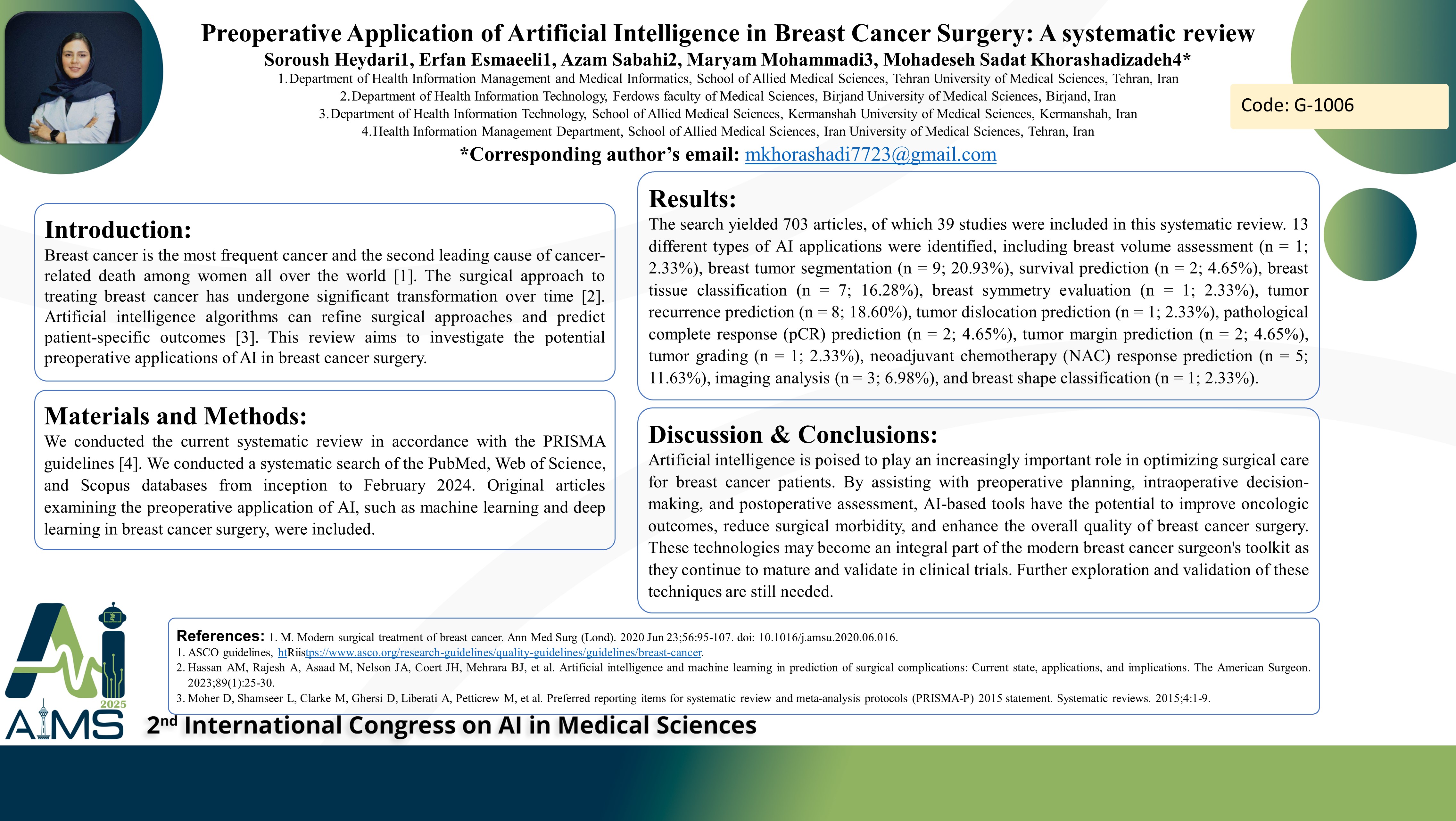Preoperative Application of Artificial Intelligence in Breast Cancer Surgery: A systematic review
Code: G-1006
Authors: Soroush Heydari, Erfan Esmaeeli ℗, Azam Sabahi, Maryam Mohammadi, Mohadeseh Sadat Khorashadizadeh *
Schedule: Not Scheduled!
Tag: Cancer Diagnosis & Treatment
Download: Download Poster
Abstract:
Abstract
Introduction Breast cancer is the most frequent cancer and the second leading cause of cancer-related death among women all over the world [1]. The surgical approach to treating breast cancer has undergone significant transformation over time [2]. Artificial intelligence algorithms can refine surgical approaches and predict patient-specific outcomes [3]. This review aims to investigate the potential preoperative applications of AI in breast cancer surgery. Materials and Methods We conducted the current systematic review in accordance with the PRISMA guidelines [4]. We conducted a systematic search of the PubMed, Web of Science, and Scopus databases from inception to February 2024. Original articles examining the preoperative application of AI, such as machine learning and deep learning in breast cancer surgery, were included. Results The search yielded 703 articles, of which 39 studies were included in this systematic review. 13 different types of AI applications were identified, including breast volume assessment (n = 1; 2.33%), breast tumor segmentation (n = 9; 20.93%), survival prediction (n = 2; 4.65%), breast tissue classification (n = 7; 16.28%), breast symmetry evaluation (n = 1; 2.33%), tumor recurrence prediction (n = 8; 18.60%), tumor dislocation prediction (n = 1; 2.33%), pathological complete response (pCR) prediction (n = 2; 4.65%), tumor margin prediction (n = 2; 4.65%), tumor grading (n = 1; 2.33%), neoadjuvant chemotherapy (NAC) response prediction (n = 5; 11.63%), imaging analysis (n = 3; 6.98%), and breast shape classification (n = 1; 2.33%). Discussion and Conclusion Artificial intelligence is poised to play an increasingly important role in optimizing surgical care for breast cancer patients. By assisting with preoperative planning, intraoperative decision-making, and postoperative assessment, AI-based tools have the potential to improve oncologic outcomes, reduce surgical morbidity, and enhance the overall quality of breast cancer surgery. These technologies may become an integral part of the modern breast cancer surgeon's toolkit as they continue to mature and validate in clinical trials. Further exploration and validation of these techniques are still needed.
Keywords
Breast Cancer Surgery, Artificial Intelligence, Preoperative
